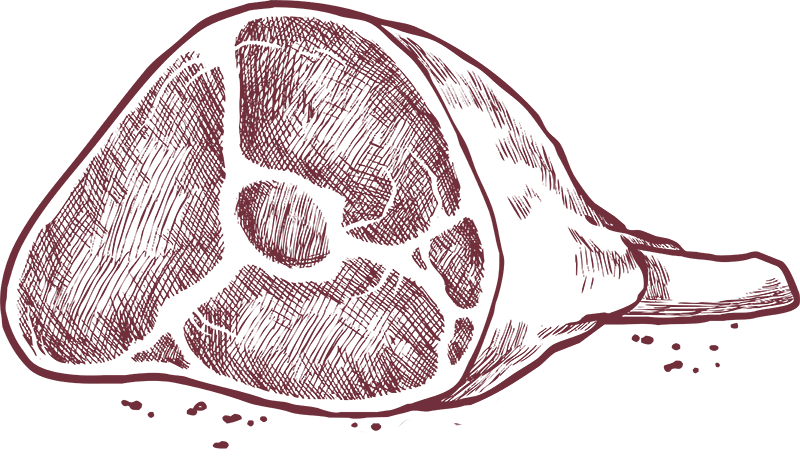
Halal meat refers to meat that complies with Islamic dietary laws. The term “halal” means “permissible” in Arabic, and it designates meat that is allowed for consumption under Islamic teachings.
Halal meat is not just about the type of animal but also how the animal is slaughtered and processed.
In this article, we will explore the key aspects, including its definition, requirements, slaughter process, and health benefits.
What Makes Meat Halal?
For meat to be halal, it must meet specific criteria set out in Islamic law. These criteria cover the species of the animal, the method of slaughter, and how the meat is prepared.
The meat comes from animals that are permissible to eat, such as cows, goats, sheep and chickens.
However, the slaughter method is as important as the animal itself, ensuring that the meat meets halal requirements.
Key Aspects
1. Permissible Animal Species
Halal meats only come from certain animals. Pork and its by-products are strictly prohibited in Islam, as are other animals like, horses, and predatory species such as lions or birds of prey.
To verify that meat is halal, consumers must check that it comes from an acceptable species. If you are unsure, always check for halal certification before purchasing.
2. Halal Slaughtering Process
The halal slaughter process, also known as Zabiha or Dhabihah, ensures that the animal is slaughtered in accordance with Islamic practices.
A Muslim who is of sound mind must carry out the slaughter.
Before making the incision, the slaughterer says, “Bismillah” (In the name of God) followed by “Allahu Akbar” (God is Great).
The slaughterer then quickly cuts the animal’s throat, ensuring it is humane. The aim is to minimize suffering and ensure proper blood drainage from the body.
3. Hygiene and Cleanliness
Halal meats require clean processing conditions. The animal must not come into contact with non-halal substances like pork or alcohol.
They should be stored, prepared, and transported separately from non-halal products to prevent contamination. Proper hygiene throughout the process is vital to maintaining halal integrity.
4. Health and Ethical Considerations
Many consumers believe it is healthier and more ethical than non-halal meat. Since the blood is drained from the meat, it reduces the risk of contamination.
Also, production focuses on humane treatment, ensuring that animals are slaughtered with respect and care. Additionally, halal meats does not contain harmful preservatives or chemicals, making it a cleaner choice for health-conscious individuals.
5. Halal Certification
This is a verification process that ensures meat products meet Islamic standards.
Reputable certification bodies inspect slaughterhouses, processors, and meat suppliers to confirm they follow halal procedures. Certified halal meats are clearly labelled, so consumers can trust it adheres to halal laws.
Why Choose Halal Meat?
Many choose halal meats not only for religious reasons but also because it aligns with ethical values.
Its production involves strict standards of cleanliness, humane treatment of animals, and high-quality processing.
Consumers who seek natural, preservative-free meat often find halal products to be a healthier choice. Moreover, it assures that the animal was treated with care throughout the process.
Click here to view our entire range of halal meats
Halal meats offer numerous benefits that extend beyond religious observance.
It is produced with ethical care, cleanliness, and humane treatment of animals. Whether for health, ethical, or religious reasons, halal meat provides a safe and nutritious option for many consumers. As demand rises globally, more people turn to it for its high standards and positive impact on their health and values.
Follow us on social media for the most recent updates and deals








